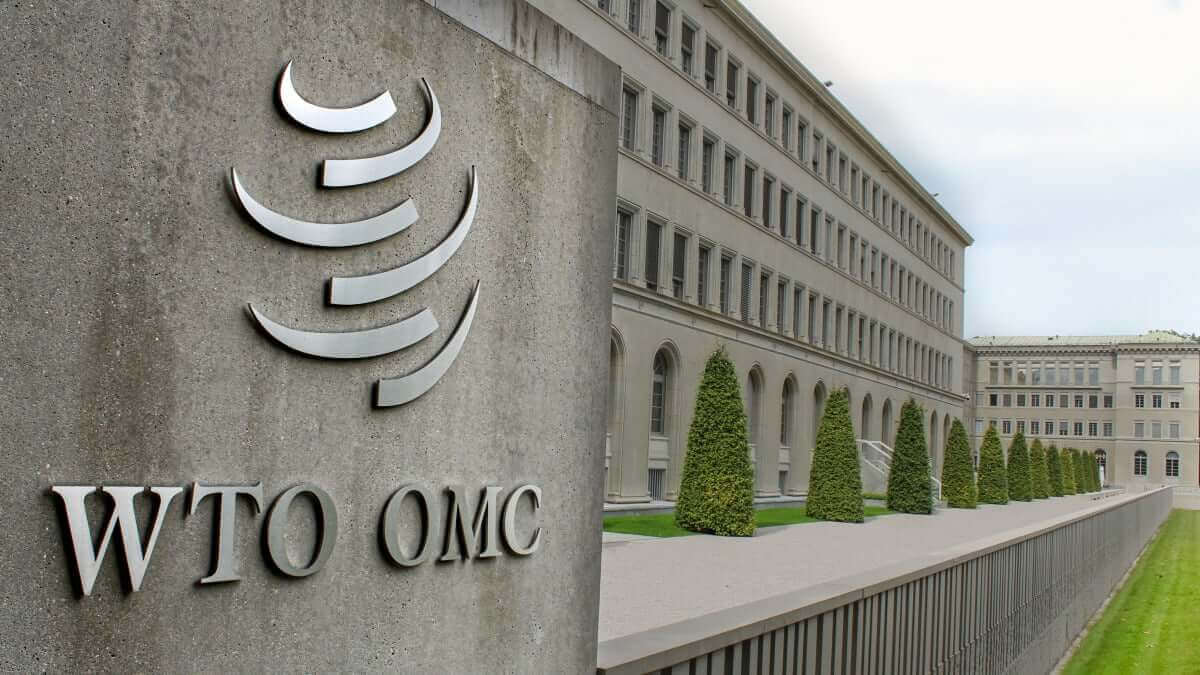The European Union (EU) announced on Wednesday that it has requested the World Trade Organisation (WTO) to initiate legal proceedings against China over its restrictions on Lithuanian exports and EU exports with Lithuanian components, in place since last December.
In a press release, the European Commission (EC) said that it has requested the international organisation’s Dispute Settlement Body (DSB) to set up a panel to address the “legality” of these “coercive” trade practices.
The EU argues that these measures are “highly damaging to European businesses” and breach WTO rules. It added that the trade giant’s “discriminatory measures” against Lithuania have impacted intra-EU trade, supply chains, and the bloc’s internal market, which include “forced market adjustments.”
“The removal of these measures is in both the economic and strategic interest of the EU,” it declared.
EU requests two WTO panels against China: trade restrictions on Lithuania and high-tech patents https://t.co/wf5XoeQsxM
— Miriam García Ferrer (@MiriamGarciaFr) December 7, 2022
Tensions between the two countries escalated last November after Taiwan opened a de facto embassy in Lithuania under its own name, suggesting its independence from China. In response to what China views as disrespect to its sovereignty, Beijing downgraded its diplomatic ties with the EU country and warned of consequences.
As a result, Lithuania’s exports to China dropped 80% from January to October 2022 compared to the same period from the previous year. Before this year, Lithuania exported roughly $230 million worth of produce to China each year. The restrictions include bans on Lithuanian alcohol, beef, dairy, logs, and peat. China has cited ‘phytosanitary’ concerns as the reason behind the bans, but the EU claims it has provided no evidence for this.
Back in January, Chinese foreign ministry spokesperson Zhao Lijian rejected allegations of “coercion” as “groundless,” saying such claims “distort facts.”
Our Chief Enforcement Officer on the EU's @wto panel requests against China on trade restrictions on Lithuania & high-tech patents 👇 https://t.co/OnnvfM4i8w
— EU Trade 🇪🇺 (@Trade_EU) December 7, 2022
Clarifying that the “problem” between the two countries was “a political not an economic one,” Zhao said that the import restrictions were imposed because Lithuania had “acted in bad faith” and “hurt China’s interests.”
He also insisted that Beijing’s issue was solely with Vilnius and not with the EU. The spokesperson called on the EU to “stay wary” of Lithuania’s “attempts to take China-EU relations hostage.”
Since the fallout, Lithuanian authorities have reported being pressured in various ways.
That said, between the official Chinese trade stats, the official bans on beef, wheat, dairy, alcohol, corporate testimony, and circumstantial + anecdotal evidence, the EU thinks it has enough evidence to win the coercion case.
— Finbarr Bermingham (@fbermingham) December 7, 2022
Apart from economic coercion, China also ramped up diplomatic pressure on Lithuanian diplomats. Last December, Vilnius recalled all its diplomats from China “due to intimidation and safety considerations” after Beijing informed the Baltic nation’s diplomats that their identification cards would no longer be valid. It subsequently closed its embassy in Beijing.
In the wake of this incident, Lithuanian Foreign Minister Gabrielius Landsbergis urged Europe to brace for Chinese economic coercion by increasing its presence in the Indo-Pacific region.
The EU has also requested the WTO to set up another panel to investigate the legality of Chinese courts issuing “anti-suit injunctions,” whereby European companies with high-tech patents have been impeded from “effectively protecting their technologies in non-Chinese courts, including EU courts.”
Both panels will be formed by March at latest, with 9-12 month timeline
— Finbarr Bermingham (@fbermingham) December 7, 2022
Both EU & China are parties to the MPIA, the unofficial appeals court set up after the demise of the appellate body.
So if either case goes to appeals stage, then it can be heard. https://t.co/PuA7WIotT9
The EC has previously said that such measures have cost companies like Sweden’s Ericsson and Finland’s Nokia’s billions of euros in revenues.
China’s Ministry of Commerce said that while it “regrets” the EU’s decision, it “will properly handle” the bloc’s concerns “in accordance with the WTO dispute settlement procedures” and will “resolutely safeguard its legitimate rights and interests.”
“China has always managed foreign trade in a manner consistent with WTO rules, continued to strengthen the protection of intellectual property rights, and strived to create a favorable environment for innovation and business operations,” MOFCOM said in a statement.
The WTO’s DSB will discuss the EU’s two requests at its next meeting, scheduled to take place on 20 December. While China can oppose such a panel’s establishment once, the EU said that in such a scenario, it would “renew its request”, and the panel will be set up during the body’s 30 January meeting next year.
We welcome the @EU_Commission's request to ask for the establishment of the @wto panel against #China for trade restrictions against Lithuania. It is an important step to protect the international rules-based system.
— Lithuania MFA | #StandWithUkraine (@LithuaniaMFA) December 7, 2022
Full statement 🔗 https://t.co/vj3QJhyeIc https://t.co/kXZZt2BUA8
The proceeding can last up to one and a half years, though the EU is positive about China abiding by a ruling in the bloc’s favour.
EU Executive Vice President and Commissioner for Trade Valdis Dombrovskis has said, “We see China take their WTO compliance seriously.”
Dombrovskis told Bloomberg that the bloc’s “first preference” was to hold consultations with China but noted that “these exchanges did not bring us the satisfactory results.”
The EU trade chief noted that this is a “recurring pattern.” He described China as a “difficult partner” due to its lack of transparency and said these requests to the EU are not just about Lithuania, as these “coercive” trade practices impact supply chains across the bloc.
He added that China’s treatment of European companies’ high-tech patents is detrimental to innovation growth and is “depriving European high-tech companies of exercising and enforcing their patent rights, which gives them a technological edge.”
For example, European companies have 3G, 4G, and 5G licenses worth billions.

